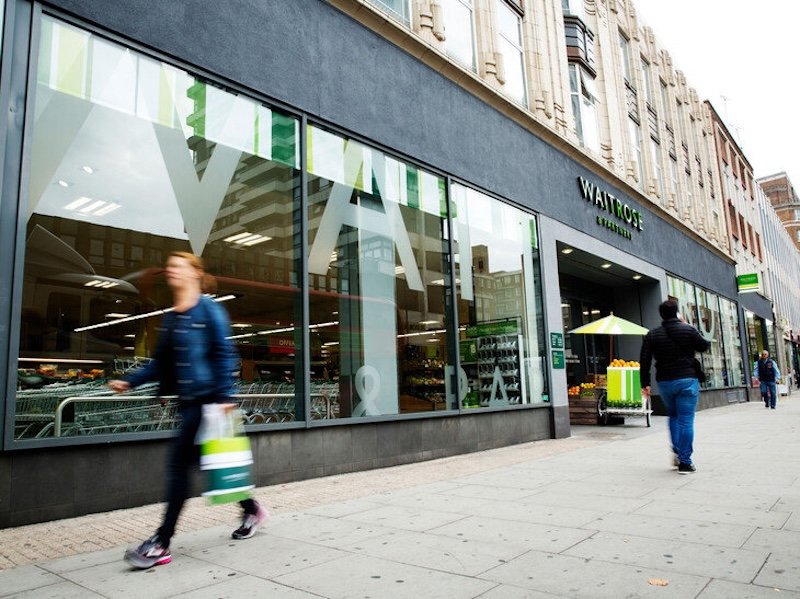"Quote...unquote"
This week’s choice quotes from the retail technology world…
“There is no point clinging to a sentimental vision of the past.” Bill Grimsey, former Chief Executive of Wickes, Iceland and Booker
“The Grimsey Review 2 is a comprehensive document outlining the very real challenges our High Streets face. What is clear in the report is that the nostalgic approach to the High Street will not save it. The report highlights the need for power to be driven locally with central support in a complete re-evaluation of business rates. Without such reform from central government the High Street will remain in a perilous state.” Catherine Shuttleworth, CEO, Savvy
“The fundamental basics of retail – selection, price, convenience – haven’t changed. However, the future will be a more blended experience. There’s still no substitute for touching, feeling, seeing the product. We’ll see more merging in the future.” Amazon UK Country Manager Doug Gurr
“Why are you selling Impeach 45 baby clothes on your website? What kind of message are you trying to send?” Ryan Fournier
“Although the departure of Demos Parneros from Barnes & Noble will make little material difference to the company in the immediate term, it does leave the bookseller leaderless at a time when it desperately needs a sense of direction. Under Parneros' management, Barnes & Noble had started to make much-needed changes to its stores, offer, and services. However, the journey remains far from complete and much more change is required before the chain can claim to be back on an even keel.
Although we recognise that there is talent within the current leadership group, we are not keen on the CEO's responsibilities being shared among its members. Management by committee is rarely successful and usually leads to inertia. That is the last thing Barnes & Noble needs and, as such, we believe that it is imperative the company appoint a new CEO as quickly as possible. Although the reasons for Parneros' departure are unclear, we applaud Barnes & Noble for taking swift action to mitigate anything that could damage its image as an inclusive business that serves education, families, and communities.” Neil Saunders, Managing Director, GlobalData Retail
“Amazon is prepared to deal in wafer-thin margins to gain new Prime members. In its first 14 years it scarcely ever turned a profit, but long-term shareholders don’t care; they know the end game. Amazon aims to tempt us all into Prime membership, through great delivery options such as free deliveries and Prime Now one-hour services, and huge bargains on Prime Day. Eventually most of the products we buy may well be either be bought or delivered through Amazon. And that’s when it realises those potential huge profits.” ParcelHero’s Head of Consumer Research, David Jinks
“Retailers cannot brush off the impact digital disruption is having and is going to have on their business, as, when implemented with the right strategy, there can be significant rewards. Retailers themselves are not inherently digital experts and innovators; they need external expertise to help them realise their digital vision and bring it to life. Making the most of digital requires more than just the latest tools. Retailers need the right skills, processes and partnerships to ensure that the technology they are implementing has the right people and strategy behind it to see success.” Jat Sahi, Digital Lead Retail, EMEIA, Fujitsu
“In addition to the physical element of “shop and go”, the Tesco trial demonstrates how fresh and innovative thinking can address historic friction points. For all retailers in every industry and every channel, this is a wake-up call to start offering customers a better, frictionless experience that puts the consumer in charge. Amazon is already leading the way in this technology but other retailers need to seriously play catch-up or risk being left behind in this retail rat race.” Patrick Munden, Global Head of Retail, Salmon
“What’s interesting about the move toward faster fulfilment is that customers haven’t really been asking for it...two days is still perfectly acceptable. As technology and processes have evolved, however, industry has come to view it as a potential differentiator in acquiring and retaining customers and their expectations are changing in line with that over time. A lingering question is whether they always know they are getting next-day; some orders are sent on premium services because customers require it and are prepared to pay for them, but many are not requested. How many ‘genuine’ next-day deliveries fail and how many orders are being delivered next-day when the customer does not actually expect them?” Andy Mulcahy, Strategy and Insight Director, IMRG










Continue reading…